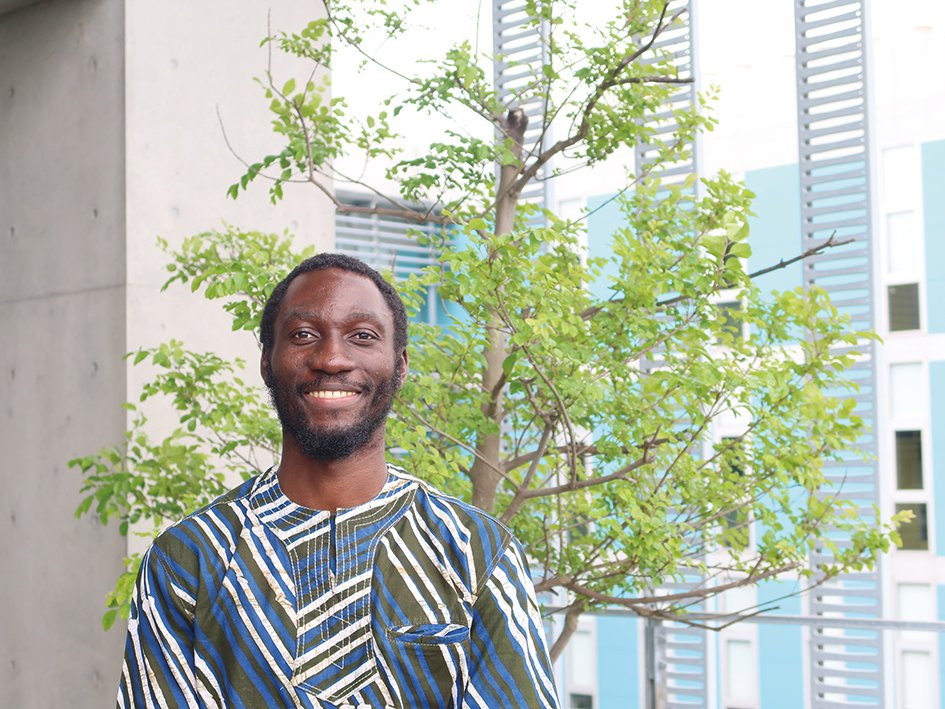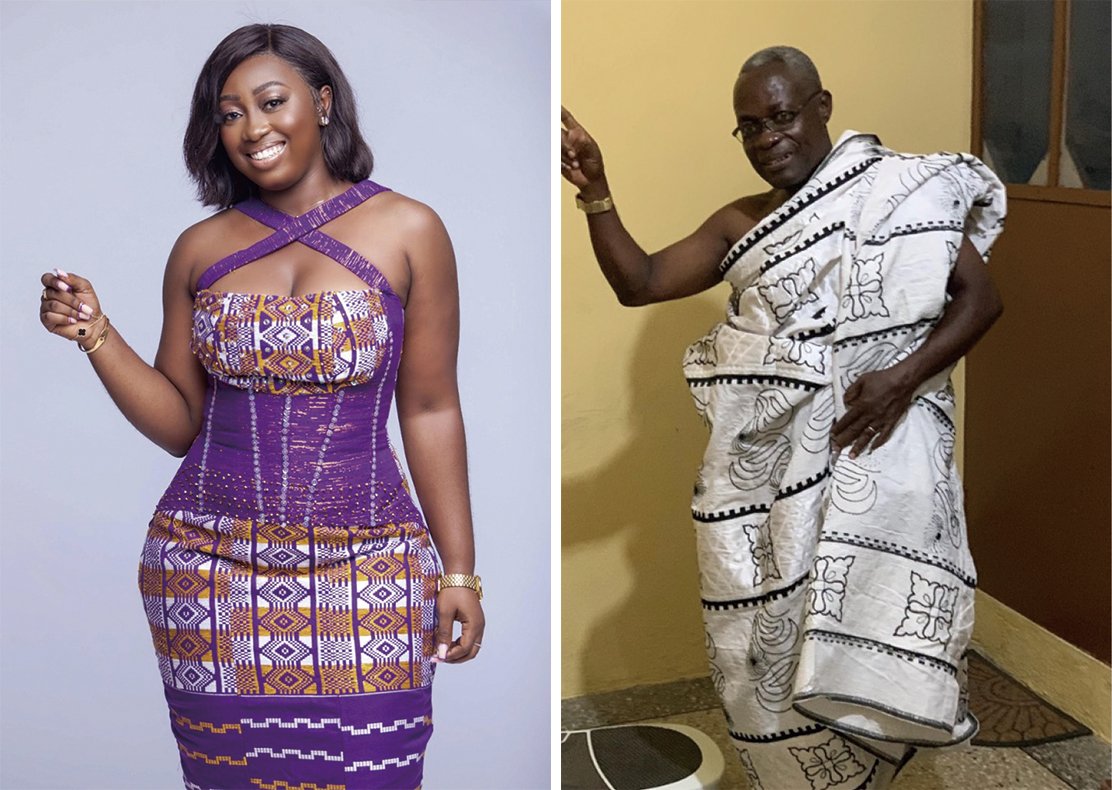Ghana, a Country of Joyful Energy

Prince. V. Cobbinah
Third-year doctoral student in the Department of Advanced Materials Science
I met Prince from Ghana. Prince did not have a chance to encounter anything related to Japan or Japanese culture until he became an undergraduate student in Ghana. The first Japanese culture he encountered in his life was Japanese anime, introduced to him by his friend. He soon became interested in it and has since watched many famous anime. When he was a master’s student, an opportunity to go to Japan suddenly came his way. His supervisor suggested that he study under Professor Yoko Yamabe-Mitarai at the GSFS, the University of Tokyo, one of the top experts in his research topic. Thus, his decision was made.

Colorful, Happy, Welcoming, Energetic
I asked him to provide keywords that describe his country, Ghana, and the Ghanaian people so that readers could learn about Ghana. His immediate answer was “colorful.” In Ghanaian culture, each color has a meaning. When you have a challenge and are determined to succeed, you wear something red. If you see somebody wearing red, everyone will know that the person is seriously attempting to decide on something. The next keyword provided by Prince was “happy.” “What is particularly unique about Ghanaians among other Africans is that we are extremely happy people and think about everything positively,” says Prince. The Ghanaian people are welcoming. They frequently invite people casually into their homes, and they are energetic about everything.

Ghanaian textile/costume, Kente
Prince’s sister, Winnifred, and father, Mr. Louis Cobbinah, whose costume represents the “journey of a king.”
Communication: Difference Between Japanese and Ghanaian
He is occasionally bewildered by the attitudes of Japanese people. In Ghana, once a few people gather, a conversation soon starts. However, it is not like that in Japan. When he entered a room where several people were and said “Konnichiwa” (Hello in Japanese), nobody answered. He was shocked by the silence. In Ghana, to respond to a person is to show respect to the person, and it is believed to be one of the most important things in Ghanaian society. Any response is fine and can be accepted as long as it is friendly. Even if an answer to a question from someone is wrong, they respect the person’s kindness and effort in attempting to answer and do not get angry about the wrong answer. If somebody provides wrong information, Japanese people may be vexed, thinking that the person lied; however, Ghanaians do not react this way.
He occasionally misses the noise in the streets and towns of Ghana. Somebody is always playing music, or you hear your neighbors humming, and you know that you are not alone in this world!
Put Your Candle on the Table
His supervisor in Ghana once told him a very important thing: Talk about your research to people from different backgrounds. It will help you learn how to talk to people who are unfamiliar with your research field using general terms instead of scientific jargon. This attitude expands the perspectives of the people on both sides. “If you hide a candle under the table, nobody can enjoy the light (knowledge). However, if you put it on the table, the light reaches many people. I am sure that Prince will place his candle on the table and brighten the world.
Interview and text by Shiori Sumida
vol.44
- Cover
- The Potentials of Materials Science
- A Turning Point of Fusion Energy Research: Increasing Commercial Ventures for Practical Application
- Pioneering New Life Science with Parasitology and Bioinformatics
- For Acquisition and Proper Use of Water Environment Data
- GSFS Front Runners: Interview with an entrepreneur
- Voices from International Students
- On Campus/Off Campus
- Event & Topics
- Awards
- Information
- Relay Essay
